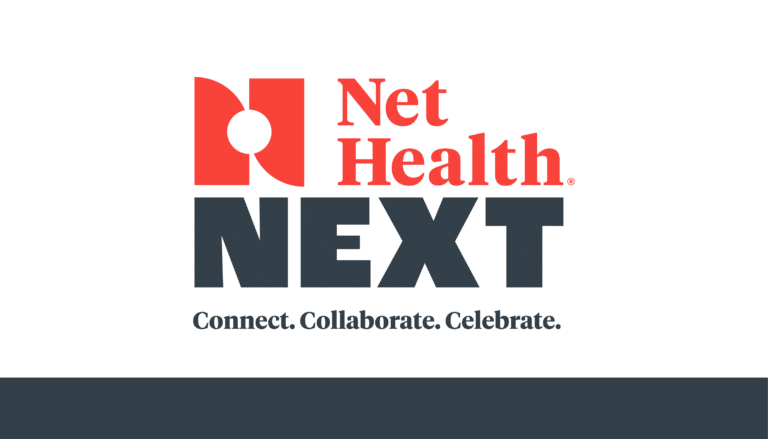September 28, 2022 | Net Health
3 Minute Read
How To Reduce Cognitive Overload When Transitioning Rehab Therapy EHR Solutions
EHR solutions are key in helping rehab therapists streamline key processes and more effectively capture patient data. But as physical, occupational and speech therapy teams acquire or upgrade new EHR solutions, some team members experience what experts call “cognitive overload,” or the seemingly paralyzing response to the overflow of information.
In this piece, we’ll take a look at current trends in EHR transition, explore the cognitive conundrum, and offer suggestions to manage cognitive overload and make the best use of new EHR features.
The State of Rehab Therapy EHRs
There are now more than 43,000 physical rehabilitation providers in the United States. Of those, 11% – around 4,700 – are considering switching their EHR solution in the next 12 months.1,2
And for most of these providers, this isn’t their first switch. Forty-three percent say their practice has already used three or more systems.3
The top reasons for switching?
According to recent survey data, 38% of respondents said they wanted an EHR that was easier to use, 33% wanted more ability to customize EHR options, 25% wanted improved quality metrics, and 23% were looking for better vendor support.4
Exploring the Cognitive Conundrum
When agencies make the move to new EHR systems, experts recommend reducing the number of scheduled patient visits by 10 to 50 percent during the first few weeks as staff become familiar with new software functions.5
The reason is so that rehab therapy teams and clinics can focus more on the transition while taking time to learn to not just use the new system, but to optimize system features for the benefit of efficiency and productivity.
Yet, despite this effort, some involved in the process may still experience what’s known as cognitive overload.
Also called information paralysis, cognitive overload occurs when the volume of information being processed outstrips our ability to handle it.
Given the amount of patient, treatment, and regulatory data now handled by healthcare providers, it’s no surprise that the addition of an entirely new system with new features and rulesets can create this kind of cognitive conundrum.
Combat Cognitive Overload
Cognitive overload isn’t unique to EHR systems. Any change in familiar operations can lead to periods of increased mental stress.
Given the benefits offered by these solutions, however – from process automation to compliance alerts and claims tracking – it’s often well worth navigating the temporary cognitive challenges that come with adoption.
And while quality EHR solution providers will roll out the red carpet while providing the training and support necessary to traverse through these challenges, rehab therapy teams and organizations can also take steps to reduce the cognitive impact and overload.
Consider the following three processes:
1. Take it One Step at a Time
Focus on one function at a time rather than trying to learn everything about a new EHR system simultaneously. For example, clinicians could prioritize patient data entry for the first week of using their EHR before moving on to more in-depth functions, shortcuts and automations.
2. Practice Mindfulness
Research analysis suggests that mindfulness training, which focuses on experiencing the present moment with acceptance rather than judgment, can increase mood and lower stress perception. This can, in turn, reduce the cognitive impact of new EHR solutions.6
3. Don’t Settle for Second-Best
Finally, it’s worth finding the right software. As noted above, poorly-constructed user interfaces may be tied to increased cognitive workloads. Solutions that offer user-friendly and streamlined functions can help clinicians better navigate new EHRs.
Avoid Cognitive Overload with Net Health Onboarding
Net Health relentlessly strives to ensure new EHR clients in rehab therapy private practice, outpatient, hospital acute, skilled nursing, and so on receive thorough training and encounter minimal disruption when we roll out a new solution.
This helps ensure clients not only avoid cognitive overload but can move forward with the high level of confidence they need in order to do their jobs confidently, efficiently and productively.
During the transition process, all Net Health clients receive the following:
- An assigned and dedicated project manager who ensures consistency in communication and project goal tracking.
- Live training sessions that provide real-time answers to client questions.
- Department-specific training for departments such as billing, scheduling, etc.
- Assistance with payer enrollment.
- Safe and complete transfer of data.
- Continued, real-time support on the “go-live” date and beyond for the smoothest possible transition.
To learn more about this process or about our various Net Health Therapy EHR solutions, contact us today to schedule a free demo.
4 Ways to Use Your EMR to Generate New Rehab Therapy Business
Leverage your existing data and reporting to obtain new patients.
REFERENCES:
1 IBIS World, “Physical Therapy Rehabilitation Centers in the US,” December 28, 2021.
2 Medical Economics, “2020 Technology Survey: Physicians Rely on Telehealth to Keep Their Practices Afloat,” November 6, 2020.
3 Medical Economics, “2017 EHR Report Card,” October 24, 2017.
4 Medical Economics, “2020 Technology Survey: Physicians Rely on Telehealth to Keep Their Practices Afloat,” November 6, 2020.
5 Medical Economics, “The True Cost of Switching EHRs,” May 30, 2018.
6 International Journal of Occupational Medicine and Environmental Health, “Mindfulness in Healthcare Professionals and Medical Education,” January 2021.





